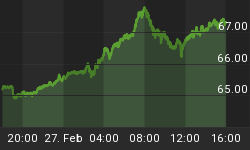
I always like to start off with a quote on what a trading plan is so lets keep to form and go with this one:
Trading plans are a lot like insurance: People don't usually want it until they've already faced a catastrophe. But after that catastrophe; maybe it was a big loss on a single position, or perhaps even worse, a margin call from one bad trade, the trader will often recognize that something needs to be done
So who wrote the above quote? Any guesses? Well if its any consolation, I don't know either!! But it summarises the situation and requirements really well.
The message from the above quote is very simple. Do NOT wait until its too late to realise that you SHOULD have had a trading plan. Get the pieces of the jigsaw in place right NOW. There is no time like the present and the consequences of not having a trading plan can be absolutely catastrophic. The time and percentage gains required to come back from a drawdown because of that one failed trade is just sometimes too difficult for a trader to claw their way back from. But thats a discussion and infact an article for another day.
I digress. Back to Trading Plans.....
So back to the question! What is a trading plan? Quite simply.....A trading plan is a tool that you can use to clearly define your trading objectives and roadmap you achieve them.
Your Roadmap

This is your roadmap which is always essential to remember. You wouldn't start a business without a business plan - why would you start trading without a trading plan? You can imagine of a trading plan as a road map; a route to take you from where you are to where you want to be. Thats what we are talking about when we talk about a trading plan!!
It can be an extremely useful tool to help you focus on the allocation and usage of capital in your trading strategy. There is no autocratic blueprint for the perfect trading plan - every trader is unique, and different styles suit different people - but there are certain universally approve elements to consider when building your own plan. What are these elements? Well thats for the next article when we will start to articulate some of the building blocks needed in a trading plan.
Some of the questions you need to ask yourself are covered off below:
-
Where are you now and where do you want to be? Metaphorically speaking, it is necessary to have a very clear and candid picture of both of these 'places' in mind.
-
What sort of trader are you now?
-
What knowledge and experience do you have?
-
How much capital do you have to trade with?
-
What do you want to achieve with your trading?
-
What sort of timeframe do you have?
-
What will success look like?
Another way to appear at a trading plan is like a business diagram. You wouldn't start a office without a business plan - why would you want to start trading without a trading plan?
General trading plan rules are required and while it is true there is no absolute blueprint to constructing the perfect corrupt design, there are a few general rules that will be extremely useful in almost all cases.
As with any suspense thriller series!, more on these areas next time in our next article as we begin a more detailed drill down into the top 10 aspects of actually creating a trading plan. We will identify the aspects of each area in more detail.
Why not join us at www.tradethesignals.com. Our strategy for trading is really simple. End of day, S&P500 Trading signals with no intraiday trading. We have 10 different algorithms programmed and  waiting patiently to execute trades. Our performance record? We have achieved over 2,000 (Yes Two Thousand!) points in the S&P during 2016. That's some record. Join our success today where our overall aim is simple. Clear end of day signals allowing us the rest of the day to focus on developing ourselves. We won't be writing too many articles about market behavior and dynamics. Instead, much will be focused on developing you and our community as individuals. Development that will stay with you irrespective of your trading strategy, time frame, technical or fundamental. Even help you outside trading! That's all for now but more on Trading Plans in our next article.















